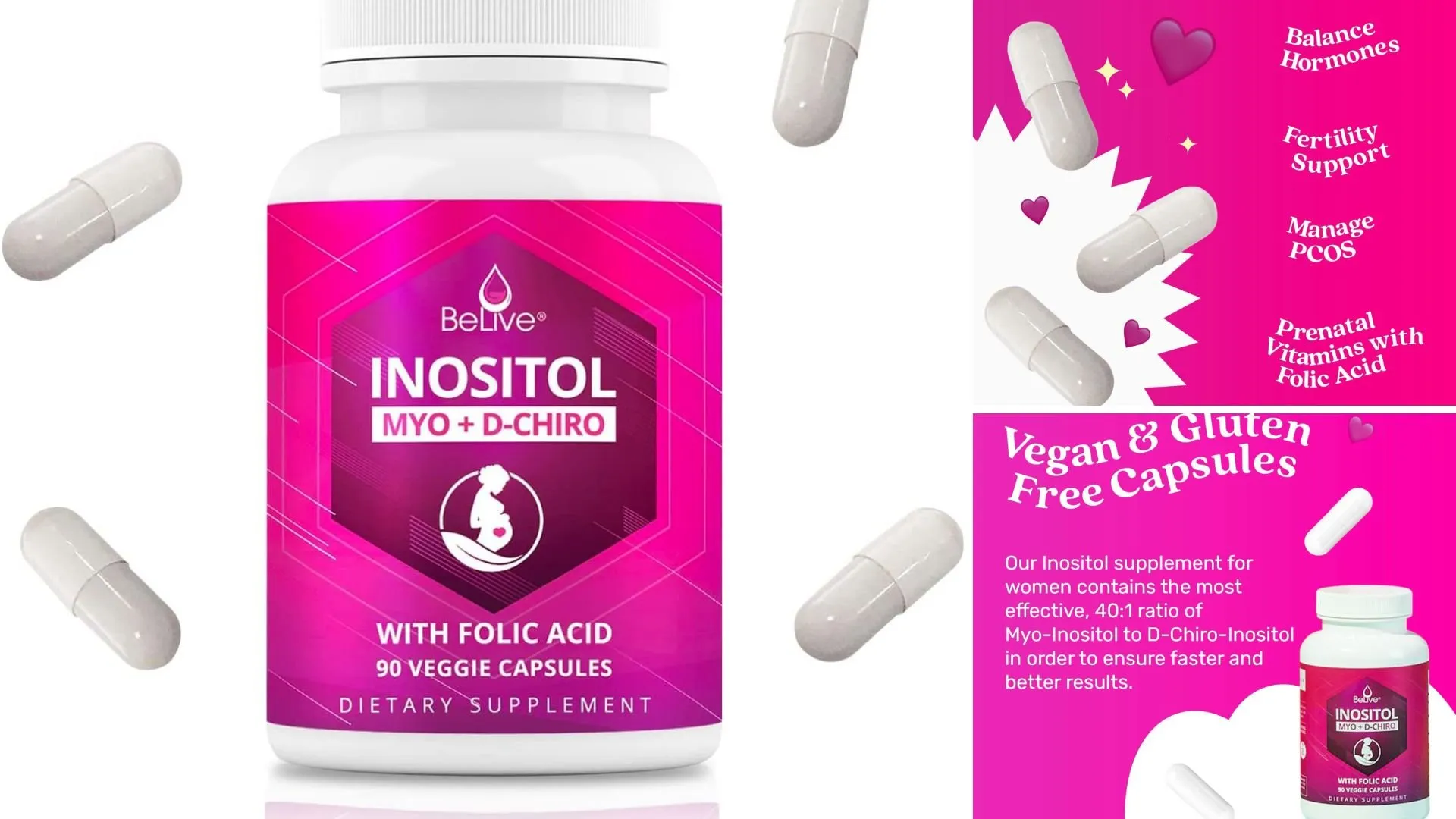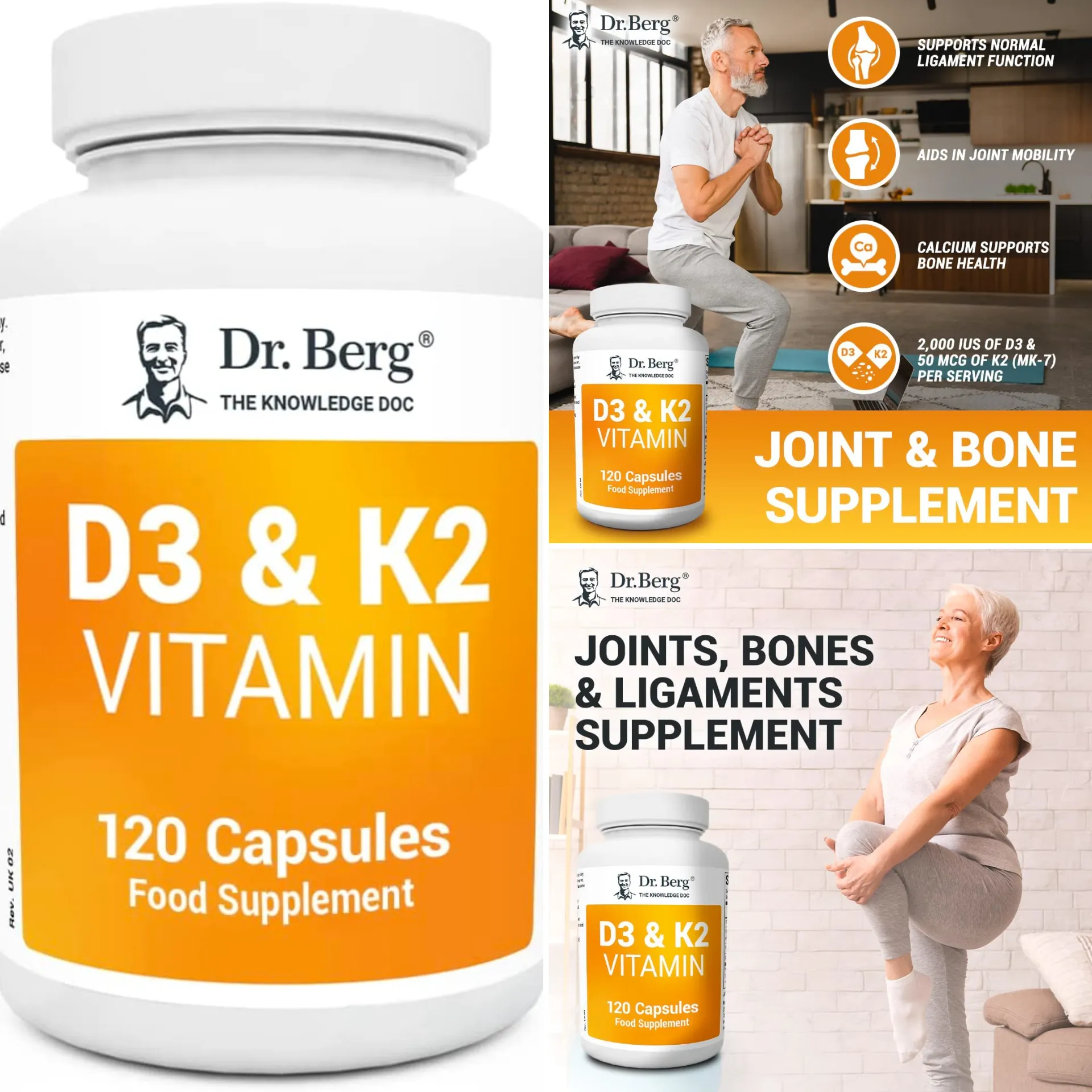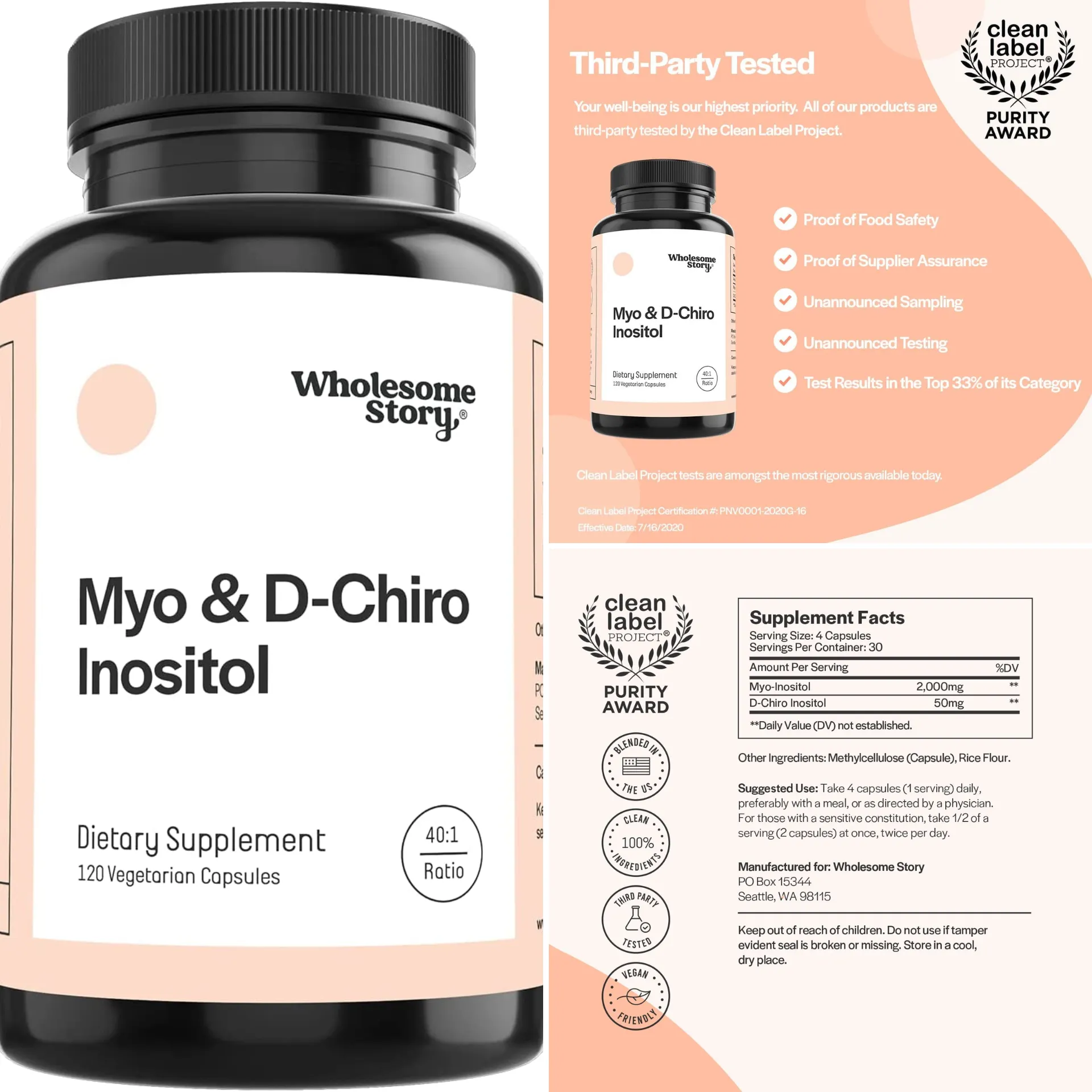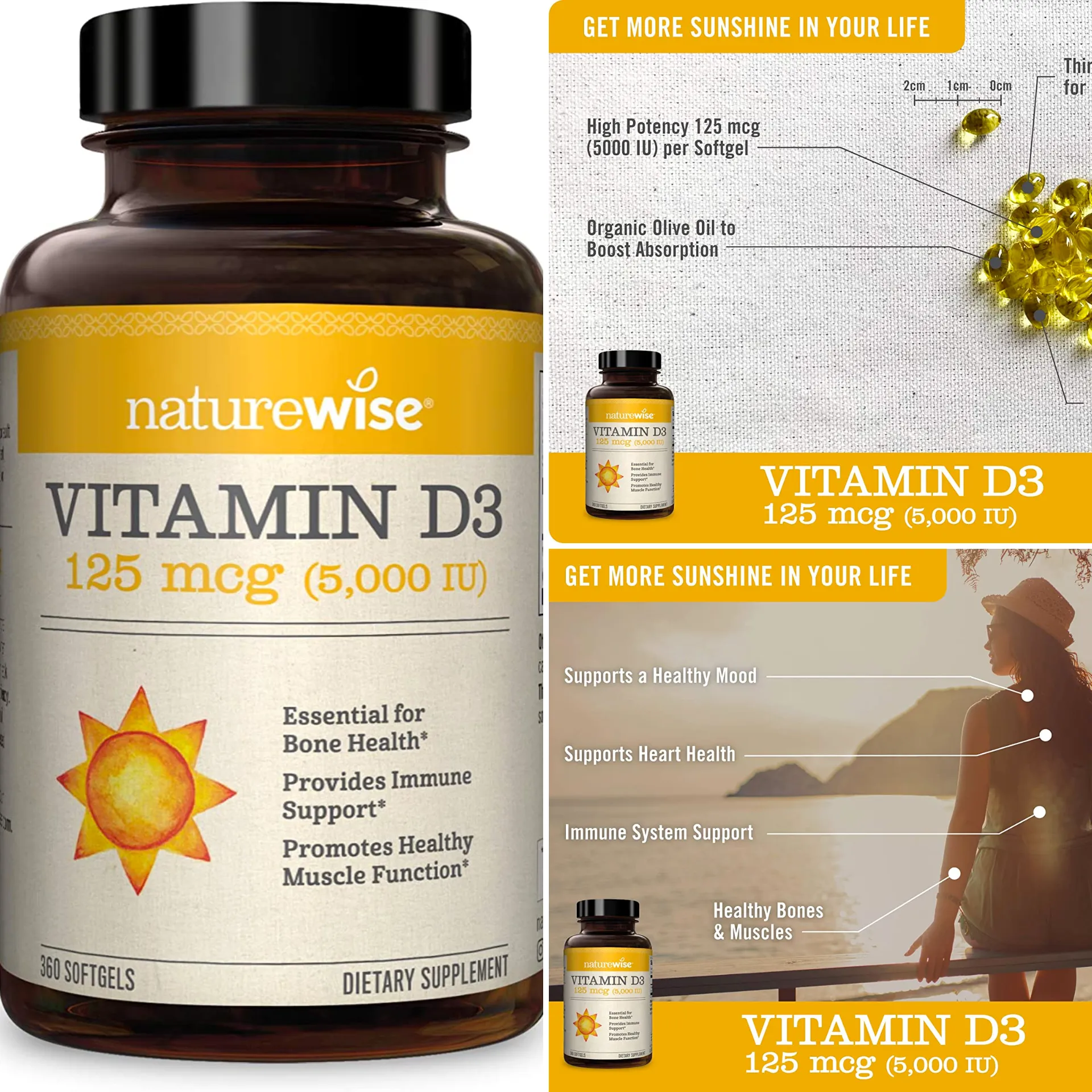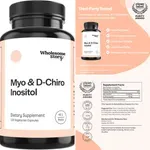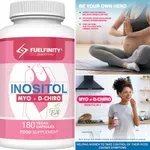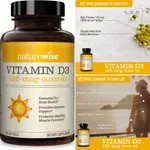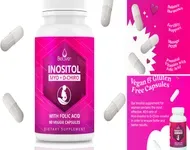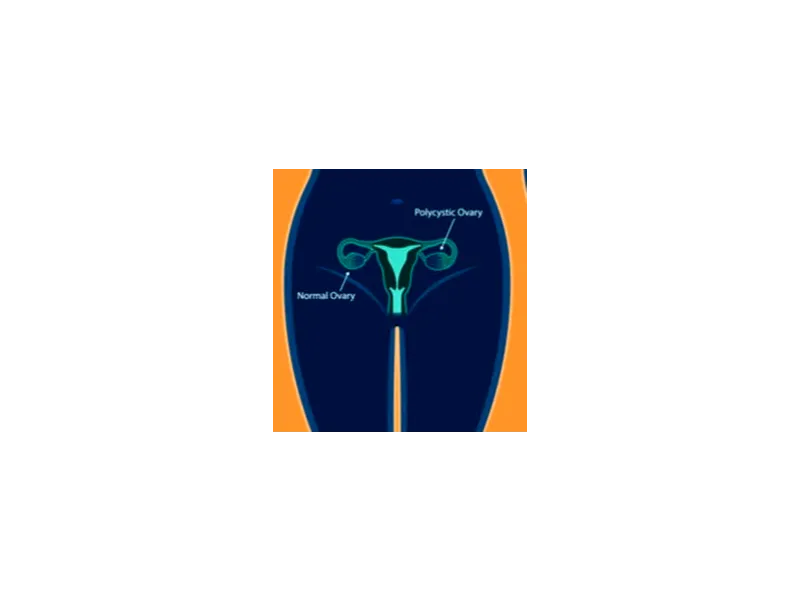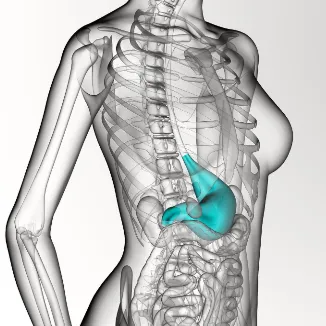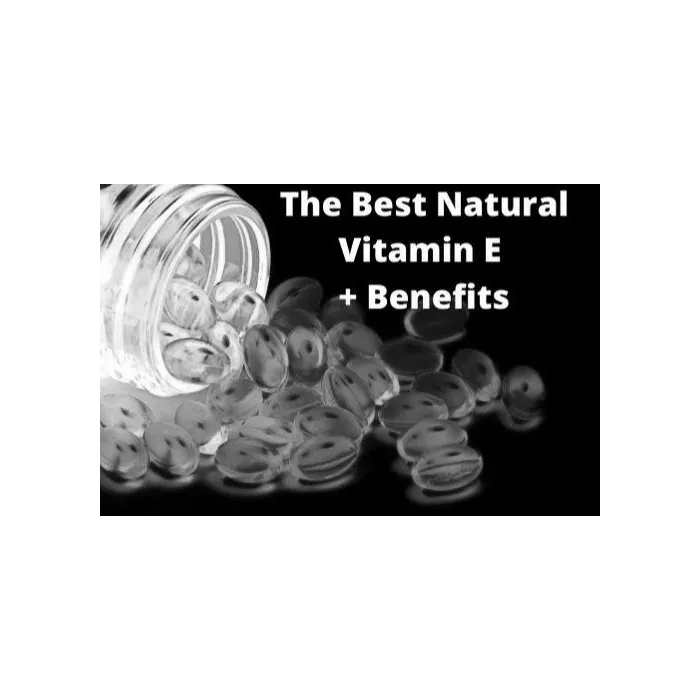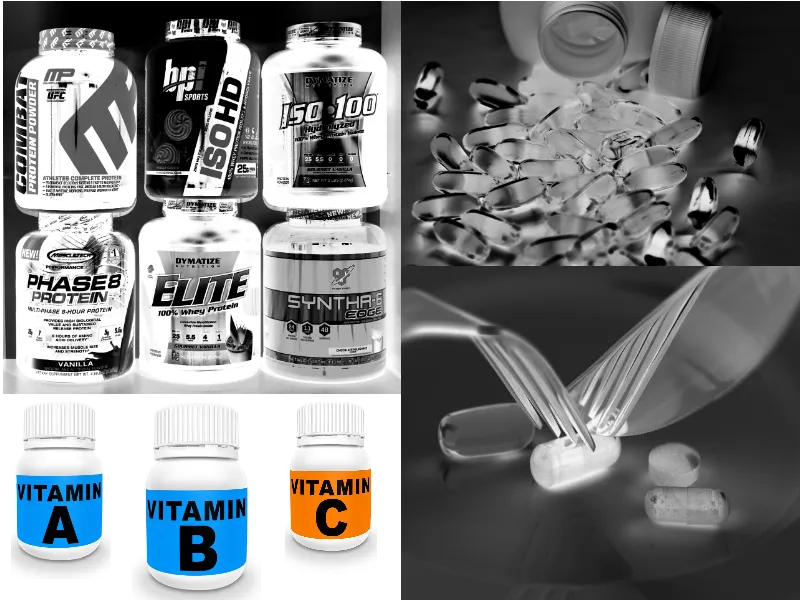Best Form of Vitamin D for PCOS
Best Form of Vitamin D for PolyCysitic Ovary Sydrome
What Is PCOS?
PCOS, or Polycystic Ovary Syndrome, is a metabolic disorder affecting women of reproductive age. It is characterized by an imbalance in reproductive hormones such as testosterone, and high levels of androgen which can lead to a variety of symptoms including irregular periods, difficulty ovulating and infertility. PCOS is also linked to insulin resistance, which can cause metabolic issues such as increased glucose levels and an increased risk of type 2 diabetes and cardiovascular disease. Women with PCOS may also experience polycystic ovaries where the ovaries become enlarged due to the formation of multiple small cysts. Symptoms vary from person to person but can include weight gain, excessive body hair growth, acne and changes in mood. Treatment for PCOS usually involves lifestyle changes such as eating healthier foods and exercising regularly plus medication to help regulate hormones and treat underlying conditions like diabetes or cardiovascular disease.
What Are The Symptoms Of PCOS?
PCOS, or Polycystic Ovary Syndrome, is a hormonal disorder that affects women of reproductive age. The main symptoms of PCOS include menstrual irregularities, infertility, and hirsutism. Other associated symptoms of PCOS may include ovarian cysts, weight gain, acne, depression, and fatigue. Women with PCOS often have higher levels of androgens (male hormones) than normal. This can lead to irregular or absent ovulation and menstrual cycles. Women with PCOS are also more likely to experience infertility due to the lack of ovulation. To treat the symptoms of PCOS, doctors may recommend lifestyle changes such as diet and exercise modifications as well as dietary supplements. In some cases medication may be used to help regulate the menstrual cycle or increase fertility in women with PCOS. It is important to remember that while there is no cure for PCOS, it can be managed effectively with the right lifestyle changes and treatments.
These Top 5 make our Top Selection List:
How we choose:
We've read through & researched countless reviews on Amazon and other Authoritative Sources and Researched Data to find some of the best of the best Vitamin D supplements for pcos (PolyCystic Overian Syndrome)
Why Myo-Inositol & D-Chiro Inositol Capsules with Folic Acid for PCOS
Made Our Best of The Best Top 5 & Why we love it
It is helpful & reassuring to know
Why Dr. Berg's D3 & K2 Vitamin
Made Our Best of The Best Top 5 & Why we love it
It is helpful & reassuring to know
A form that is easy for your body to use comes from all-natural sources. Its natural ingredients are meant to be used by the body to support good health.
Why Wholesome Story Myo-Inositol & D-Chiro Inositol
Made Our Best of The Best Top 5 & Why we love it
It is helpful & reassuring to know
They are proud of the products they sell, but they also understand that their supplements may not work for everyone
Why Naturewise Vitamin D3 Made Our Best of The Best Top 5 & Why we love it
It is helpful & reassuring to know
Their softgels are easy to swallow. Some research shows that liquid softgel is more bioavailable than powdered or tablets. These Vitamin D3 immune support and bone health supplements are free of Artificial Additives. Third party , tested for purity. .
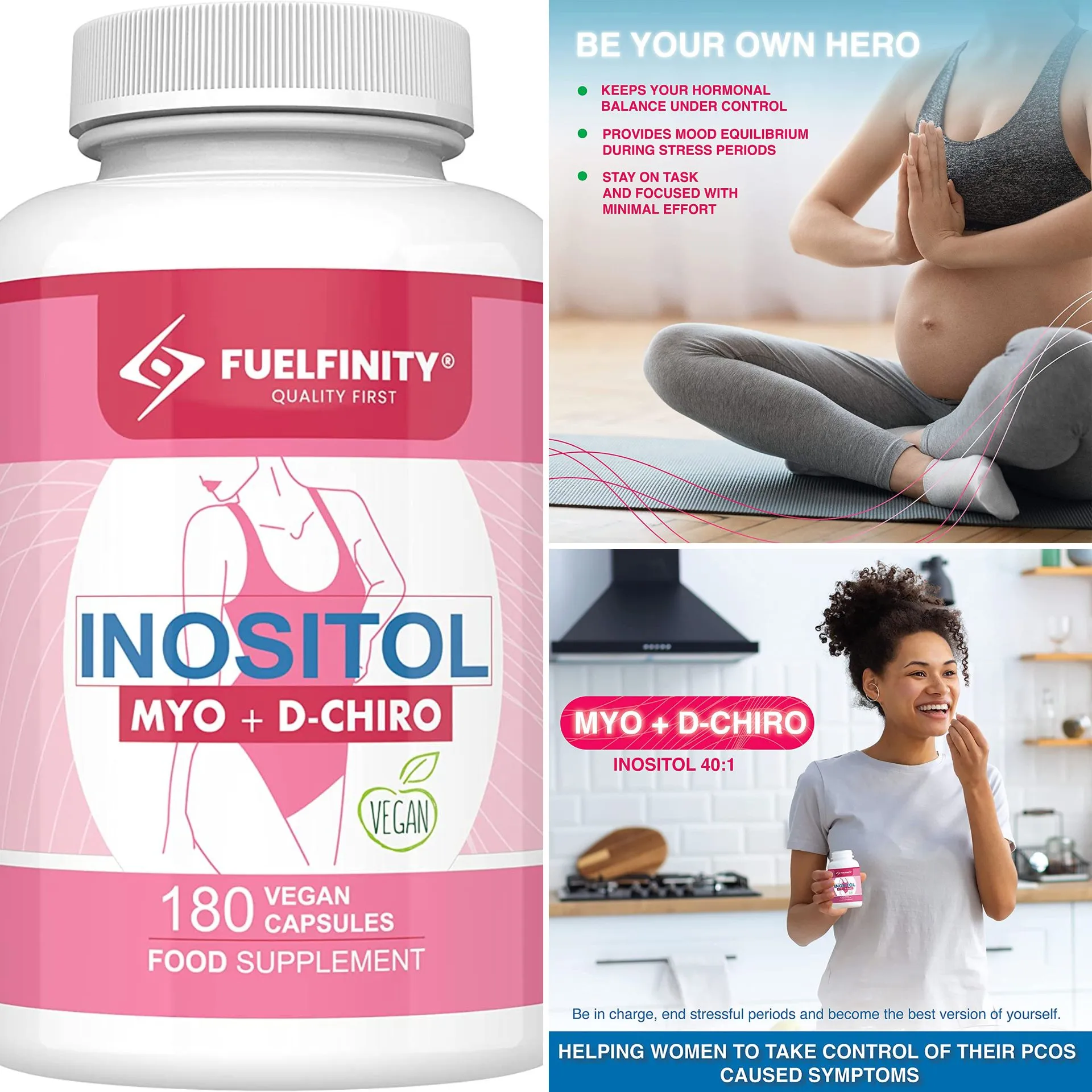
Why FuelFinity Myo-Inositol & D-Chrio Inositol
Made Our Best of The Best Top 5 & Why we love it
It is helpful & reassuring to know
Fuelfinity Trust is an organization dedicated to providing the highest quality myo-inositol capsules to customers. They prioritize customer satisfaction and aim to build lasting relationships with their customers. Their products are free of any dyes, and if customers are not satisfied with the product, they can return it within 30 days for a full refund.
Knowledge Base
PCOS
What is PCOS?
Symptoms of PCOS
Supplements for PCOS
Vitamin D for PCOS
Women with Polycystic Ovary Syndrome
Vitamin D and PCOS
PCOS Supplements
FAQ
Why Should Women With PCOS Care About Vitamin D Deficiency?
Women with PCOS should be aware of the potential for Vitamin D deficiency, as this can have a significant impact on their health. Vitamin D deficiency has been linked to insulin resistance, which is a common symptom of PCOS. It has also been associated with exacerbating hyperandrogenism and menstrual irregularities, both of which are common symptoms of PCOS. Therefore, it is important for women with PCOS to get their serum vitamin D levels checked and determine if they are deficient. If they are found to be deficient, it is important to take steps to correct the deficiency in order to reduce the severity of symptoms such as hirsutism, irregular menstruation, and ovulatory dysfunction. Taking steps to ensure that your vitamin D levels are at healthy levels can help reduce the severity of your PCOS symptoms and improve your overall health.
How can supplements help PCOS?
Supplements can be a helpful aid in managing PCOS, or Polycystic Ovary Syndrome. This syndrome is caused by hormonal imbalance and can present with a variety of symptoms including irregular menstrual cycles, excess hair growth, infertility and ovarian cysts. Supplements may help to reduce some of the most common PCOS symptoms such as regulating ovulation, reducing hirsutism (excess hair growth) and improving insulin sensitivity. Additionally, these supplements may also help to reduce inflammation associated with the condition by providing essential vitamins and minerals that the body needs to function optimally. It is important to speak with your doctor before starting any supplement regimen as some supplements may interact with medications you are taking or have adverse effects if taken in excess.
Vitamin D3 Dosage For PCOS
Vitamin D3 is an important nutrient for those living with PCOS. The recommended dosage is 4000 IU per day to achieve optimal serum 25-hydroxyvitamin D concentration of at least 30 ng/ml. This can be taken as a single daily dose or divided into two 2000 IU doses. Vitamin D3 supplementation should always be monitored by a healthcare professional to ensure the correct dosage is being taken. It has been suggested that those who are already taking calcium or magnesium supplements may require higher doses of vitamin D3, as these vitamins work together in the body for absorption. Therefore it is important to speak with your doctor about the best dosage for you specifically if you are taking other supplements alongside vitamin D3.
Where To Get The Best Vitamin D Supplements
When looking for the best Vitamin D supplement, it’s important to consider your personal Vitamin D status. The most effective supplements are tailored to individual needs, such as those with certain medical conditions like PCOS (Polycystic Ovarian Syndrome). It’s also important to take into account factors like age, lifestyle, and diet. If you’re unsure which supplement is right for you, it’s best to consult with a healthcare professional. Many supplements are available over-the-counter at pharmacies or health food stores. You can also find them online from reputable retailers and manufacturers. When purchasing online, be sure to check product reviews and do your research to ensure that the supplement meets safety standards. With a bit of research, you can find the best Vitamin D supplement for your individual needs.
Best OTC supplements for PCOS symptoms
PCOS, or Polycystic Ovary Syndrome, is a common endocrine disorder that affects women of reproductive age. Symptoms include irregular menstrual cycles, excessive hair growth in unwanted places, acne, and infertility. People diagnosed with PCOS often experience elevated levels of glucose and insulin, as well as testosterone. Therefore, the best OTC supplements for PCOS are those that help to balance glucose and insulin levels. Metformin is one such supplement that is often prescribed to people with PCOS because it helps to reduce insulin resistance and regulate blood sugar levels. Other supplements that may be beneficial for treating PCOS symptoms include magnesium, zinc, omega-3 fatty acids, and Vitamin D. All these supplements can help improve menstrual regularity and reduce testosterone levels in women with PCOS who are deficient in these nutrients. However, it is important to consult with a doctor before taking any supplement to determine the right dose for a particular individual’s needs.
PCOS supplement FAQ
PCOS (Polycystic Ovary Syndrome) is a common endocrine disorder that affects many women. It can cause a variety of symptoms, such as irregular periods, weight gain, hirsutism, and difficulty getting pregnant. Supplements for PCOS have become increasingly popular as they offer an alternative approach to managing the condition. Common supplements include inositol, chromium, omega-3 fatty acids, and vitamins B6 and D3. They are believed to help improve insulin sensitivity and reduce symptoms of PCOS. Additionally, there is evidence that some supplements may improve fertility by improving egg quality and regularizing ovulation. Before taking any supplement for PCOS, be sure to consult your healthcare provider about any possible deficiency or insulin resistance you may have. Answering a PCOS supplement FAQ can help you make an informed decision about the supplements that are right for you.
How to take vitamin D for PCOS?
Taking vitamin D for PCOS is a simple and easy way to help manage your symptoms. To get the most benefits, it’s important to take a daily supplement with at least 1000 IU of vitamin D3. Additionally, try to get some direct sun exposure every day if possible. This will help ensure that your body is capable of producing enough of its own vitamin D. If you don’t have access to regular sunshine, you can also get vitamin D from certain foods like salmon, tuna, and eggs. It may also be beneficial to talk to your doctor about taking a higher-dose supplement or adding in additional sources of vitamin D such as multivitamins or calcium supplements. Taking these steps can help you manage the symptoms of PCOS and lead to better overall health.
What is the healthiest form of vitamin D?
Vitamin D is essential for many bodily functions and for overall health. The healthiest form of vitamin D comes from the sun. When our skin is exposed to direct sunlight, it produces a natural form of vitamin D called cholecalciferol. This form of vitamin D helps to regulate the amount of calcium and phosphate in the body, which are important for keeping bones, teeth and muscles healthy. Additionally, research has indicated that getting enough vitamin D may help protect against certain diseases like cancer, type 2 diabetes and heart disease. For those who have limited exposure to the sun or cannot get enough naturally produced Vitamin D, fortified foods and supplements can be taken as an alternative source. However, it is important to consult with a doctor before taking any kind of supplement as too much Vitamin D can be toxic.
What type of vitamin D supplement is best absorbed?
When looking for a vitamin D supplement, it is important to consider which type of supplement is best absorbed by the body. Studies have shown that Vitamin D3 is more easily and quickly absorbed than Vitamin D2 supplements, making it the preferred option for supplementation. Vitamin D3 can be found in both liquid and pill forms as well as food sources such as cod liver oil. It is also important to note that Vitamin D3 should not be taken in doses exceeding 4000 IU per day without consulting with a healthcare provider first. Taking too much vitamin D could lead to potential side effects or toxicity. Additionally, some people may benefit from taking vitamin D3 with a fat-containing meal or snack since this helps increase absorption of the vitamin into the bloodstream. Ultimately, when selecting a vitamin D supplement, it is best to consult with a healthcare provider regarding individual needs and preferences.
What are the best supplements to take for PCOS?
When it comes to supplements for PCOS, there are a few that have been shown to be beneficial. The best supplements to take for PCOS include omega-3 fatty acids, vitamin D, chromium, zinc, and inositol. Omega-3 fatty acids help regulate hormones and reduce inflammation. Vitamin D helps with insulin sensitivity and can improve lipid levels. Chromium helps to regulate blood sugar levels and may help reduce symptoms of PCOS such as acne or hair loss. Zinc helps to normalize hormone balance and may reduce the risk of diabetes in women with PCOS. Inositol has been shown to improve insulin resistance, lower cholesterol levels, and reduce hirsutism (excessive hair growth) associated with PCOS. It is important to talk to your doctor before taking any supplement as they can interact with any medications you may be taking.
How much vitamin D can a woman take a day?
Vitamin D is an essential nutrient for women, as it helps the body absorb calcium and phosphorus. The recommended daily amount of vitamin D for women is 600 international units (IU). However, the optimal daily intake of vitamin D may vary depending on a woman's age and skin type. For example, pregnant or breastfeeding women may need more than 600 IU per day. Additionally, those who live in northern climates or have darker skin may need more than the average amount of vitamin D due to decreased exposure to sunlight. Furthermore, it is important to note that too much vitamin D can be harmful and lead to adverse health effects such as nausea, vomiting, constipation, weakness and weight loss. Therefore, it is highly recommended that women consult with their doctor before taking any supplements containing vitamin D to ensure they are getting an adequate amount while avoiding potential side effects.
What is the healthiest way to get vitamin D?
The healthiest way to get vitamin D is through exposure to sunlight as well as dietary sources. Sunlight is the most efficient source of vitamin D, and just 15 minutes of direct sunlight to the skin can provide you with enough vitamin D for the day. Eating foods that are rich in vitamin D, such as fatty fish like salmon and tuna, eggs, fortified milk and cereals, will also help increase your intake of this important nutrient. Additionally, some supplements may be beneficial if you have difficulty meeting your daily needs through sun exposure or diet alone. It's important to talk to your doctor before taking any type of supplement as too much vitamin D can cause serious health problems.
What is the most natural form of vitamin D?
Vitamin D is an essential nutrient that is naturally found in some foods, such as fatty fish and eggs, but the most natural form of vitamin D comes from exposure to sunlight. Sunlight triggers a biochemical reaction in the skin that produces vitamin D3, also known as cholecalciferol. Vitamin D3 is important for maintaining healthy bones and teeth, as well as regulating other important bodily functions. Exposure to sunlight is considered the best source of vitamin D3 because it doesn’t need to be metabolized by the body like dietary sources do. The amount of time needed for adequate vitamin D production depends on several factors like age, skin type and geographic location. So if you live in a sunny climate and have fair skin, short amounts of exposure should be enough to get your daily dose of vitamin D. However, it’s important to remember that too much sun can cause skin damage so make sure to use sunscreen whenever you are outside for extended periods of time.
Which is better for you D or D3?
When considering which is better for you, D or D3, there are a few things to keep in mind. D is a programming language which is used to create dynamic and interactive websites. It has been around since the late 1990s and is known for its simple syntax and ease of use, making it ideal for beginning coders. By comparison, D3 is a JavaScript library used to create data-driven documents. It offers more advanced features than D and makes it easier to visualize data in an interactive way. Ultimately, which one is better will depend on your coding goals. If you need something that’s easy to learn and simple to use, then D might be a good choice. On the other hand, if you’re looking for something with more powerful capabilities, then D3 could be the right choice for you.
Which form of vitamin D is best absorbed?
Vitamin D plays an important role in overall health and well-being, so it's important to ensure that your body is getting the right form of vitamin D. Of the two main forms of vitamin D - D2 and D3 - D3 is generally considered to be the best absorbed form. Studies have shown that vitamin D3 is more efficiently absorbed into the bloodstream than vitamin D2, which can help to provide greater health benefits. Additionally, Vitamin D3 is found naturally in foods such as eggs, fatty fish, and mushrooms, while Vitamin D2 is not found naturally in food sources and must be obtained through supplements. For these reasons, many experts agree that Vitamin D3 is the better option for optimal absorption and health benefits.
What is the best way to take vitamin D for absorption?
The best way to take vitamin D for absorption is to get ample exposure to the sun. The body naturally produces vitamin D when exposed to sunlight, so spending a few minutes in the sun each day can help ensure that your body is getting enough of this essential nutrient. In addition, you can also take vitamin D supplements if needed. These supplements come in different forms such as capsules, tablets, or drops and should be taken with a meal for optimal absorption. Be sure to talk to your doctor before taking any type of supplement, as they can provide further advice on which type is best for you and how much you should be taking each day.
Do you know what your vitamin D levels are?
Do you know what your vitamin D levels are? Vitamin D is an essential nutrient for healthy bones, muscles, and overall health. Low levels of vitamin D can lead to fatigue, muscle aches, depression, and a weakened immune system. It is important to make sure that you get enough vitamin D through sun exposure or supplementation. You should also have your vitamin D levels tested periodically to make sure they are within the normal range. There are several simple blood tests that can help determine your current level of vitamin D. Talk to your doctor about testing options that may be available in your area or online. By understanding your current level of vitamin D and taking steps to maintain it, you can help ensure that you stay healthy and strong.

